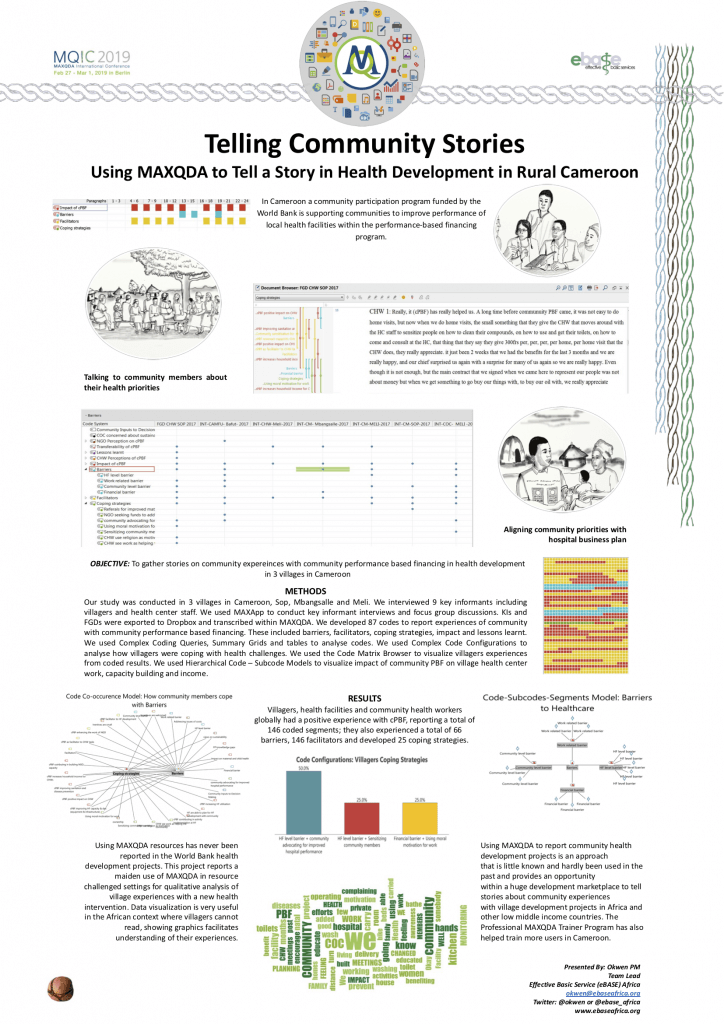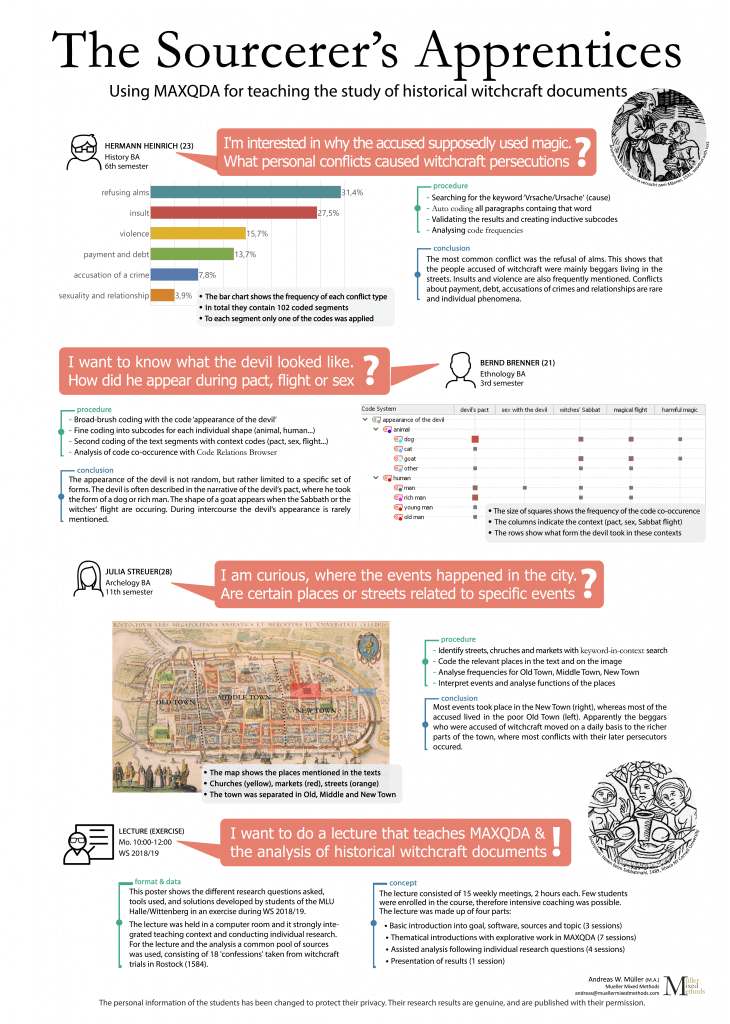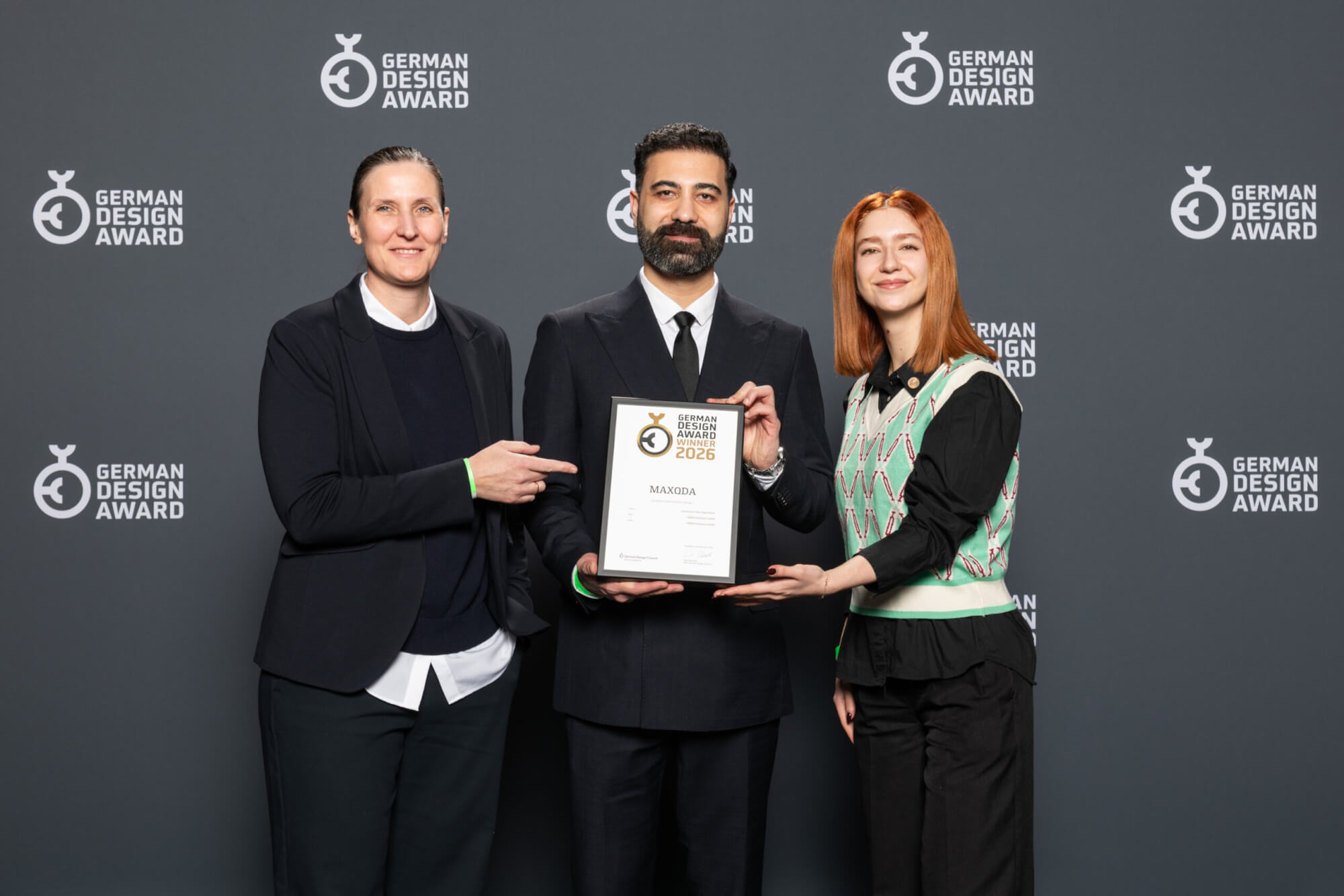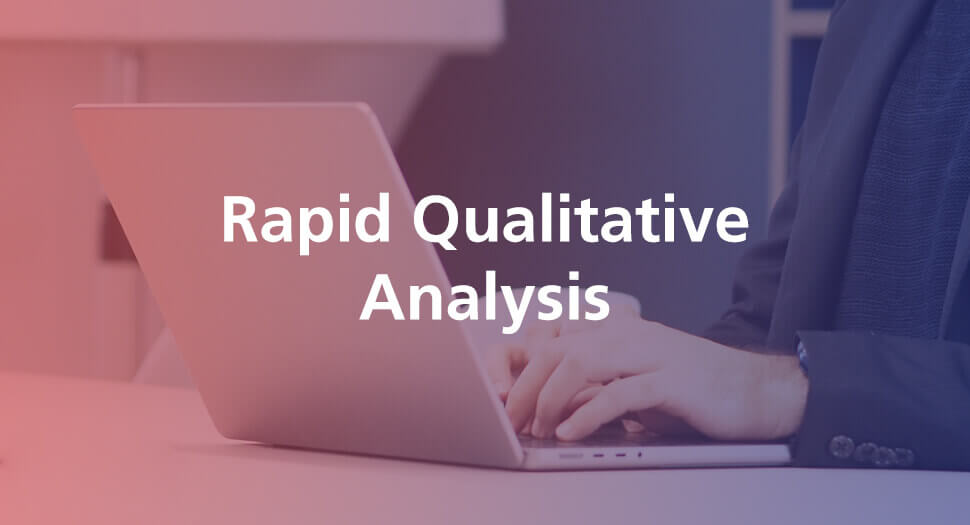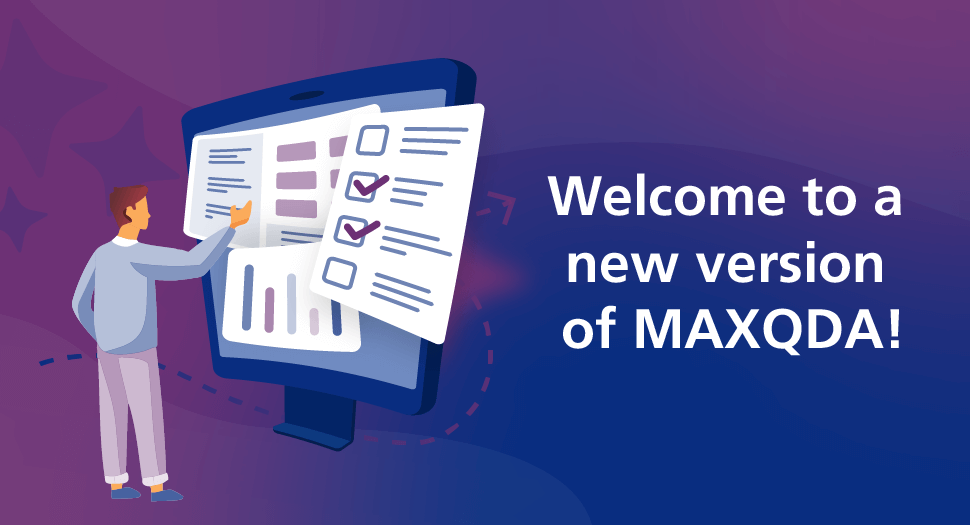Every year at the end of February, MAXQDA enthusiasts from around the world have a unique opportunity to exchange best practices and expand their MAXQDA knowledge at the MAXQDA International Conference (MQIC). And this year’s MQIC was our biggest conference yet – with 175 participants!
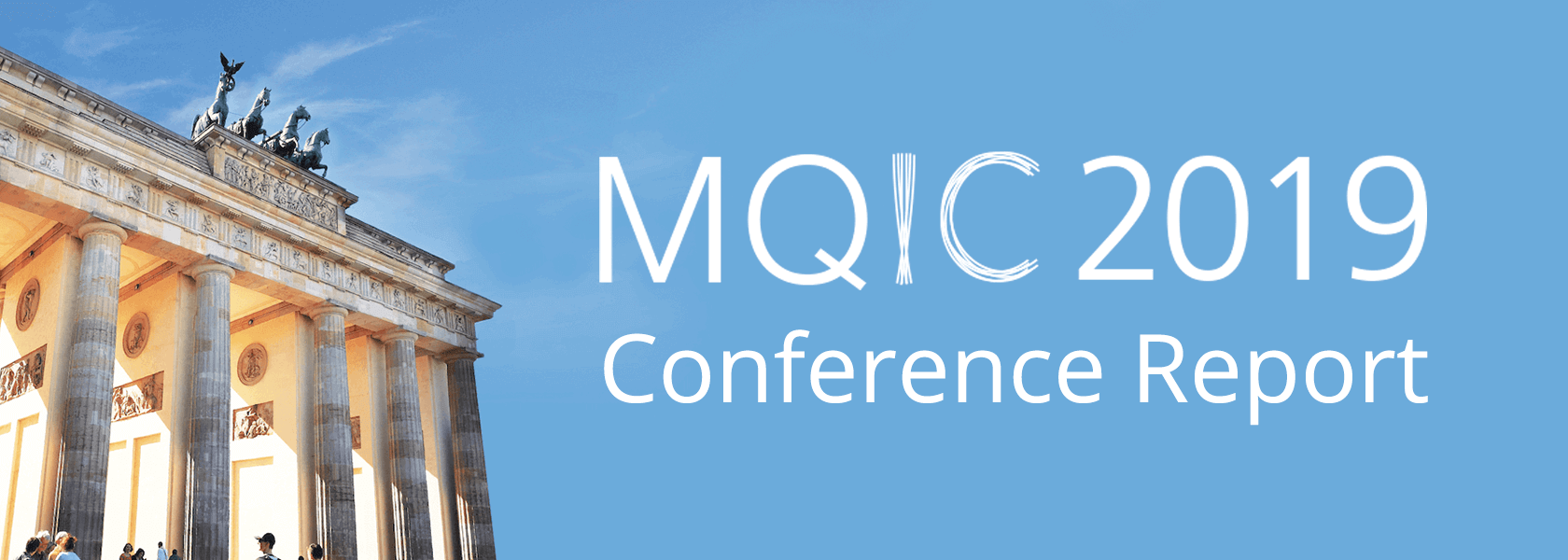
Guests came to Berlin, Germany from 21 countries and shared ideas from 26 research disciplines. What all of them had in common was an eagerness to exchange knowledge, talk about experiences, and learn more about qualitative and mixed methods data analysis. The three days were filled with opportunities to learn, discover, and connect – just as the slogan of the conference suggests!
The conference schedule was also packed with learning and networking sessions, offering participants a choice of 30 Spotlight Sessions, 12 workshops, 4 Best Practice Roundtables, 2 Keynotes, and a Poster Session (displaying 17 unique posters and awarding 7 cash prizes) – all of that in just 3 days!
Welcoming Address: “30 Years of MAXQDA”
The MQIC opened with the Welcoming Address “30 Years of MAXQDA: Where We Came from and Where We are Headed”, presented by 3 members of the MAXQDA development team – Anne Kuckartz (CEO, VERBI Software), Julia Gerson (CCO, VERBI Software), and Isabel Kuckartz (COO, VERBI Software). Accordingly, the speech was divided into 3 parts, which were symbolically entitled “yesterday”, “today”, and “tomorrow”.
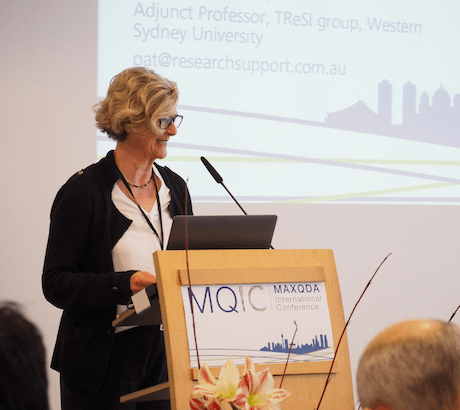
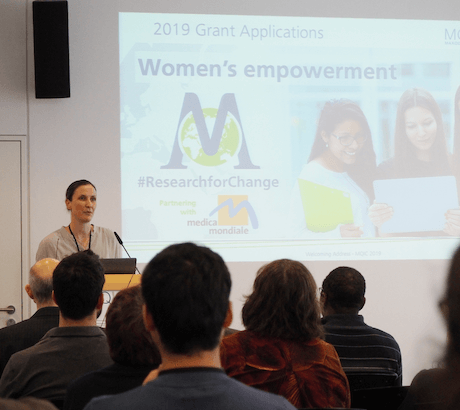
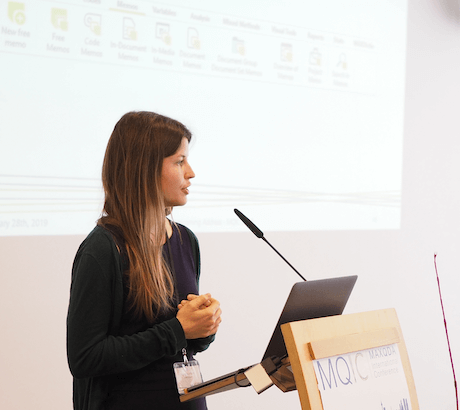
The first part, “yesterday”, was presented by VERBI Software’s Chief Executive Officer, Anne Kuckartz. She shared an amazing summary of MAXQDA’s progress and development over the years, all the way from the first version of the software, released in 1989.
This year’s conference was the perfect opportunity to do so because MAXQDA is celebrating a very special anniversary: it has been 30 years since Udo Kuckartz launched the first version of the software, just called “MAX” at the time (after Max Weber). Back then, it was the first CAQDAS software in Germany – and one of only a few in the world!
Anne Kuckartz then passed on the mic on to Julia Gerson, the VERBI Software’s Chief Communications Officer, who spoke about MAXQDA “today”, focusing on the MAXQDA Community. Our User Community consists of thousands of researchers across the world and is essential for the development and growth of the MAXQDA.
We love your feedback and engagement on all of our platforms, from the MAXQDA Forum to social media and everything in between. Thank you to everyone who clicked the feedback button in MAXQDA, joined our Research Network, or submitted an article for this MAXQDA Research Blog, – to name just a few of the engagement opportunities you all took part in this year!
One of the cornerstones of our community is the Professional MAXQDA Trainer network. Today, there are 128 active trainers all around the world, and new trainers are always welcome! You can learn more about the network and how to become a trainer here:
Two other important MAXQDA community projects, which were created so that researchers can present their work with MAXQDA are the #PictureYourResearch and #ResearchforChange initiatives. The #PictureYourResearch MAXQDA Photo Contest is an annual opportunity for researchers to submit their best pictures taken while working on their projects with MAXQDA: snapshots from fieldwork, behind-the-scenes moments, some beautiful or interesting discoveries they want to share. It’s a favorite event here at VERBI Software and we look forward to more amazing images from you this fall!
Julia also opened the applications for this year’s #ResearchforChange Grant! The MAXQDA Research Grant initiative is a scholarship program created to support student researchers with professional research software and training. This year’s grant theme is women’s empowerment, and MAXQDA is proud to be partnering with medica mondiale, an NGO in Germany that stands up for women and girls in war and crisis zones throughout the world.
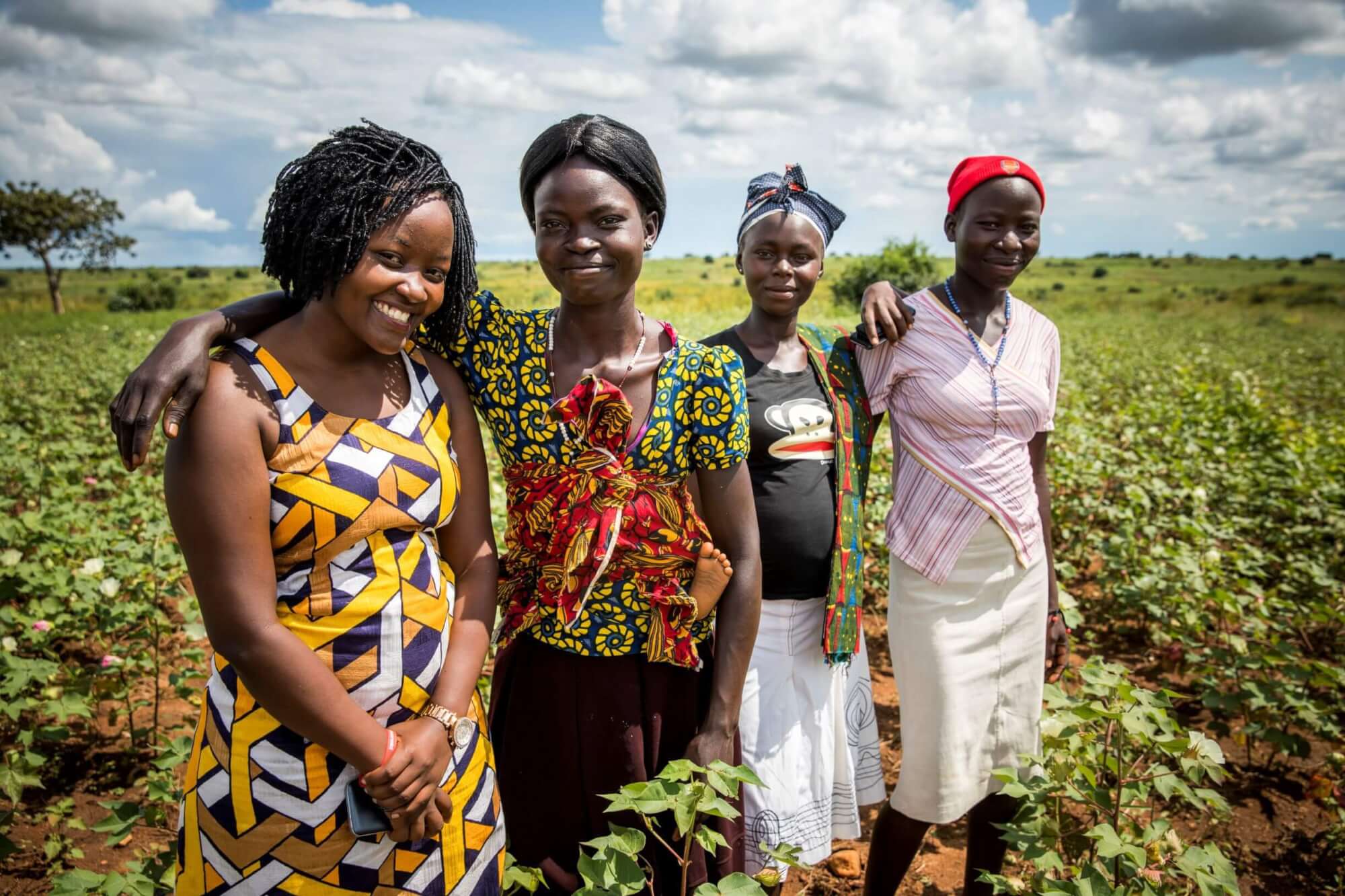
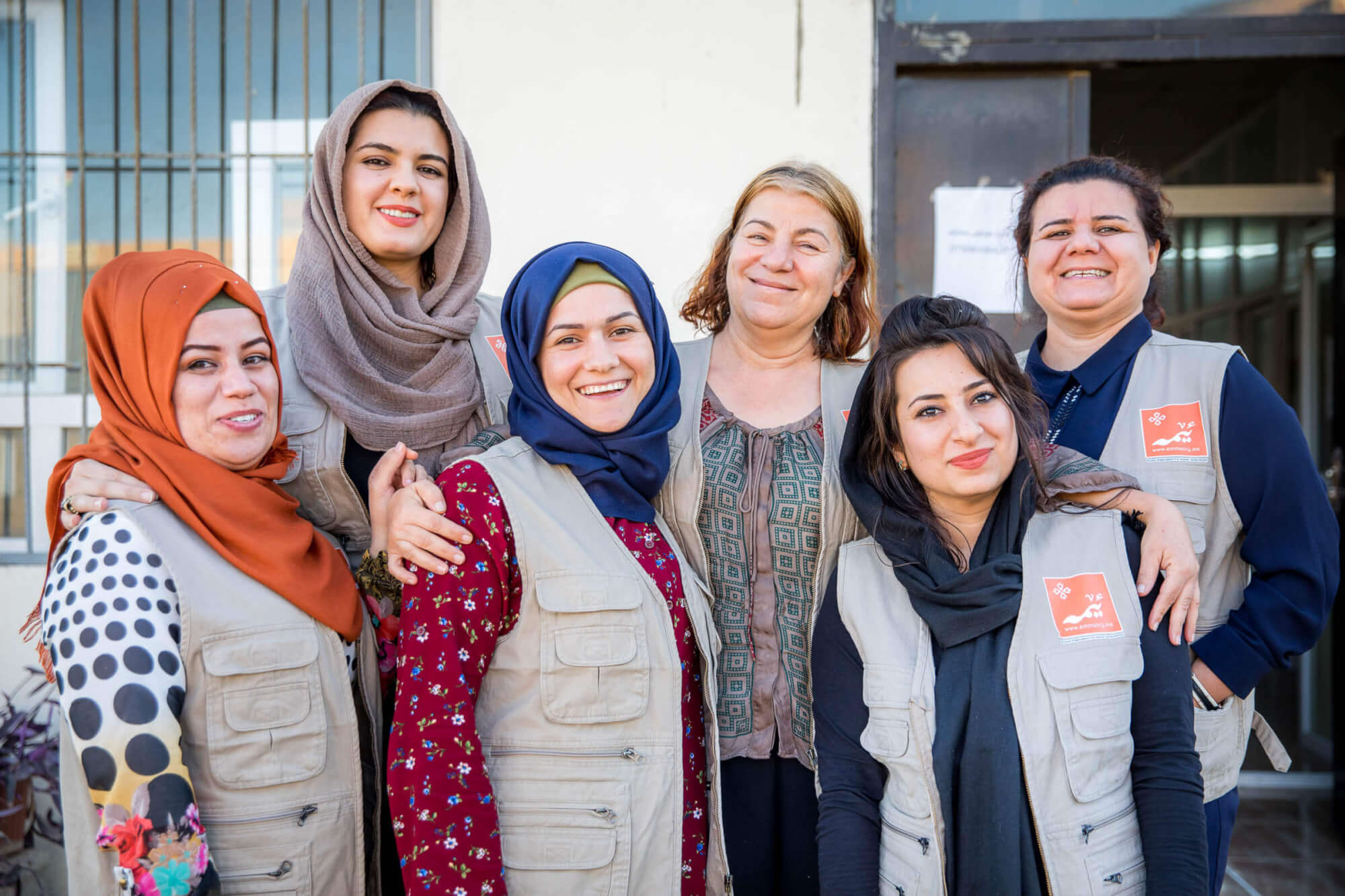
Up next, Isabel Kuckartz, Chief Operations Officer at VERBI Software, shared a rare sneak-peek into what’s coming up in the year to come. Since MAXQDA 2018 was released in December 2017, two updates have followed, with the most recent one in January 2019.
MAXQDA 2018.2 introduced the Code Map, which allows users to visualize the relationship between codes, along with enhanced Teamwork functions, making it easier to exchange parts of the project within small research teams. There are many new features and functions coming in the next version of MAXQDA. Stay tuned for further information coming soon!
Keynote Address: “Transcending the Qualitative-Quantitative Divide”
The MQIC 2019 Keynote Address was delivered by Dr. Pat Bazeley, Director of Research Support P/L and Adjunct Professor in the Translational Research and Social Innovation Centre at Western Sydney University.
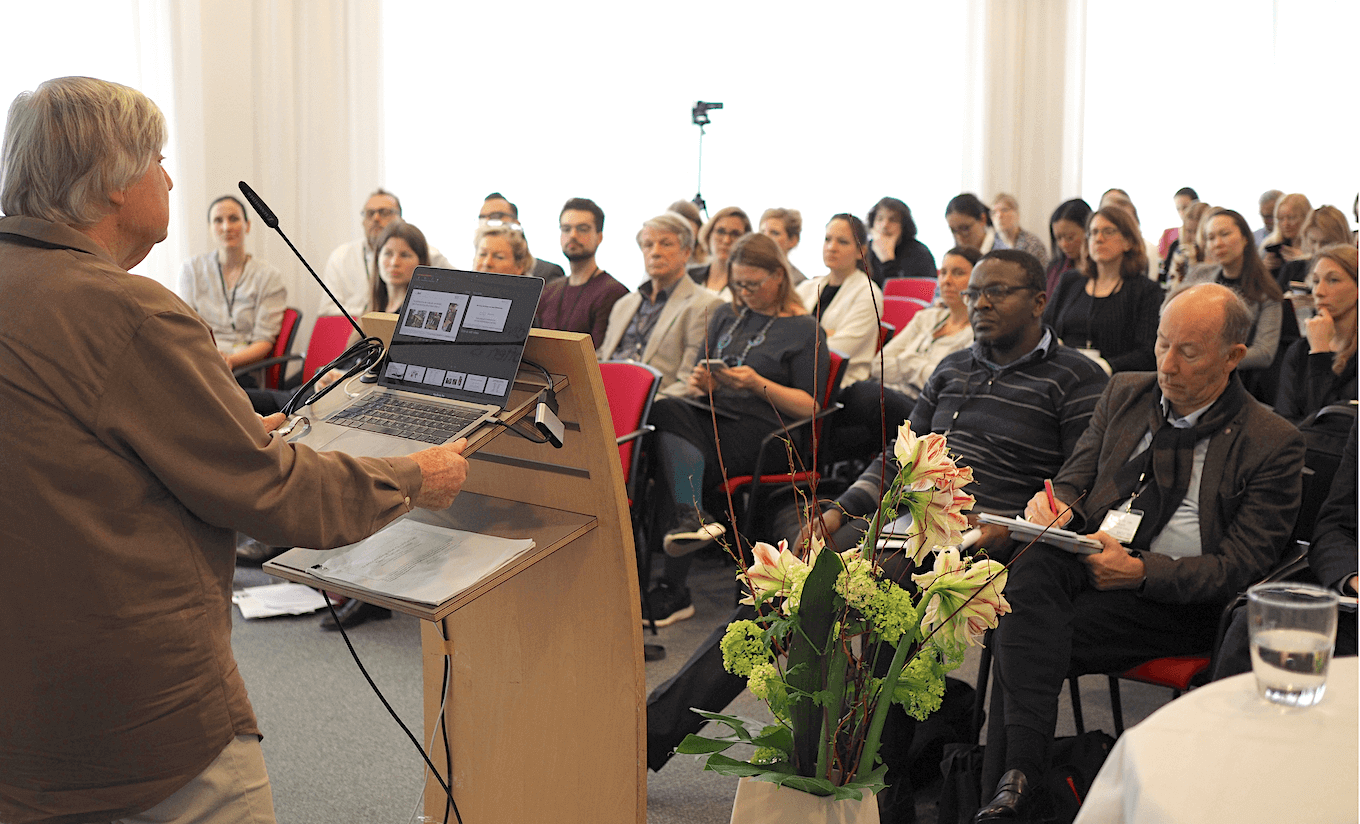
The aim of Dr. Bazeley’s presentation was to challenge several notions around current mixed methods research traditions. According to Dr. Bazeley, the research world is still divided into qualitative and quantitative research sides. Dr. Bazeley confronts the qual-quant divide by proposing that all phenomena are multidimensional – they all possess both qualities and quantities.
Furthermore, existing definitions of mixed methods, according to Dr. Bazeley, only bridge the difference between the two types of data, but don’t transcend it and thus perpetuate the divide. Most of these definitions mention the combination of qualitative and quantitative research approaches. Dr. Bazeley offers a new alternative definition of mixed methods:
Mixed methods studies are those in which more than one source or type of data, and/or more than one approach to analysis of those data, are integrated throughout the study in such a way as to become interdependent in reaching a common theoretical or research goal.Bazeley, 2010
Dr. Bazeley also has practical advice regarding implementing mixed methods throughout one’s research. In order to transcend the divide between two data types, the researcher should:
- Have a common purpose or goal across diverse methods. A researcher must explore the research problem from multiple perspectives and design the research free from constraints on the choice of methods.
- Thus, the data should be selected on the basis of need, relevance (and availability) rather than type.
- Different methods must be analytically integrated into the research in order to generate a sum greater than the parts.
- A key to integration is analytic writing. While arriving at the final part of the research, it is essential to integrate results as well as conclusions, which means that results and conclusions must be presented around issues to be discussed rather than methods.
In conclusion, Dr. Bazeley advised all researchers to practice in mixed methods as much as they can. “A mixed methods way is likely to become a habit of thinking”. Stay tuned for the video of Dr. Bazeley’s keynote address, coming soon on the MAXQDA YouTube channel!
► Watch Keynote addressDownload Presentation Slides (PDF)
Workshops: Methods, Methodology, and MAXQDA
There are always two types of workshops offered at the MQIC: Pre-Conference Workshops (full-day) and Post-Conference Workshops (half-day), forming a bookend around the conference events on Thursday and Friday morning that brings the learning opportunities full circle. The interactive nature of these workshops presents MAXQDA users with the opportunity not only to learn something new but then immediately try it on their laptops, creating a great combination of theory and practice!
The workshops were offered in English and German and divided into two levels – those where no prior experience with MAXQDA tools was required and those that required experience with basic MAXQDA tools. This format allowed for various groups of MAXQDA users to find the training opportunities that were right for them, at all levels! All workshops were held by Professional MAXQDA Trainers with long-held experience both in research praxis and teaching MAXQDA. You can find the full list of MQIC 2019 Workshops here.
Spotlight Sessions: Tips and Tricks from the Experts
Spotlight Sessions are unique to the MQIC. They are brief but in-depth 30-minute mini-workshops focusing on topics that vary from specific methodologies to specific MAXQDA functions. This year, several new topics were introduced, including MAXQDA’s Teamwork functions, YouTube Analysis with MAXQDA 2018.1, and mixed methods analysis with the Interactive Quote Matrix.
In contrast to the workshops, participants didn’t need to register for the Spotlight Sessions in advance and were thereby free to choose between the 30 sessions distributed over 5 time-blocks. As a result, everyone could freely customize their own conference schedule to meet their learning needs, and each participant had a completely unique MQIC experience! You can find the full list of MQIC 2019 Spotlight Sessions here.
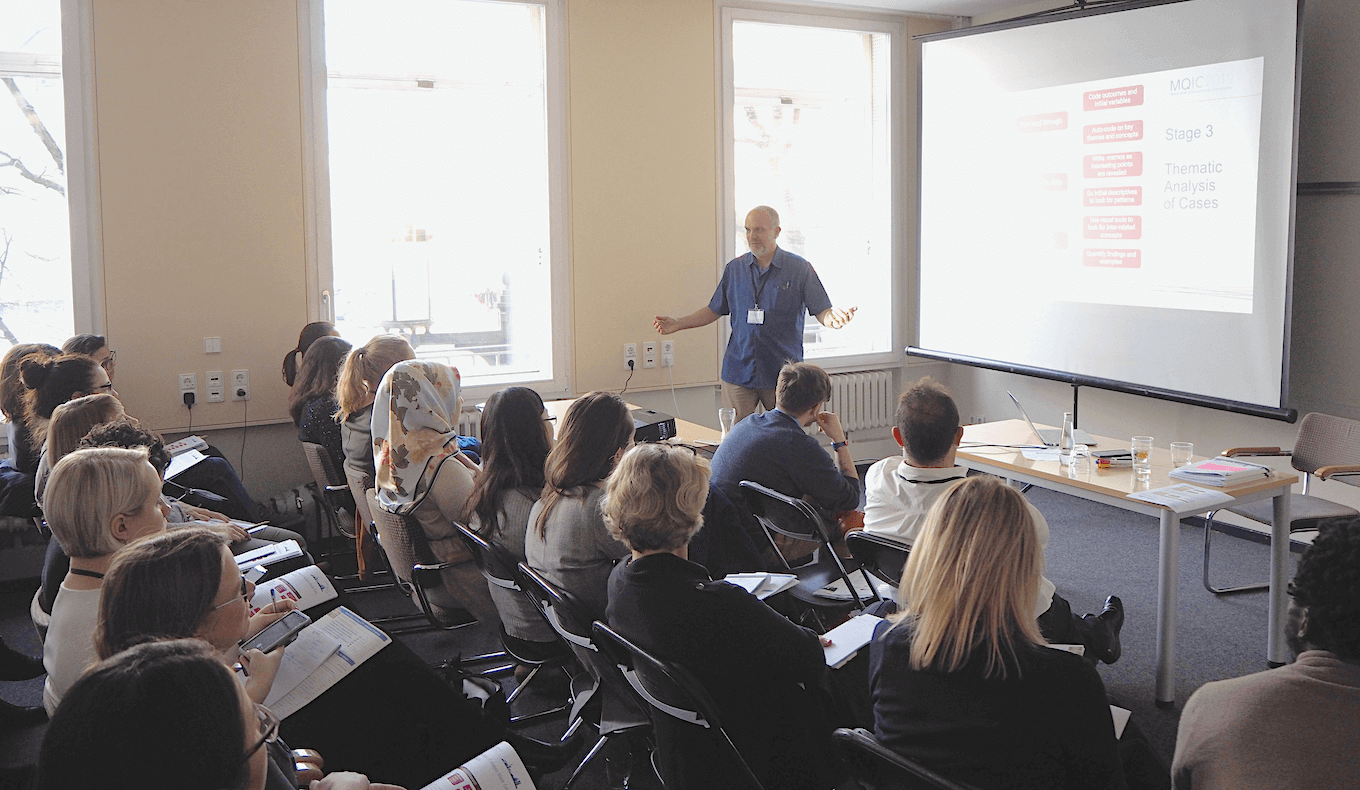
MAXQDA Best Practice Roundtables: Exchange Your Ideas
Best Practice Roundtables give the participants a chance to present their own project and talk about it with trainers and other participants. This year there were 4 topics: Mixed Methods Research with MAXQDA, Publishing with MAXQDA – Visualizations and Reports, MAXQDA Technical Questions – Data Organization and Project Structure, Teaching and Learning MAXQDA.
Each topic’s table was moderated by an expert in this field. This year we introduced the MAXQDA Gong! Every 15 minutes, the gong would be struck to allow for an easy changing of seats, without having to interrupt another speaker at the table. We’ve gotten a lot of great feedback about the gong and it looks like it has become the newest signature staple of the conference.
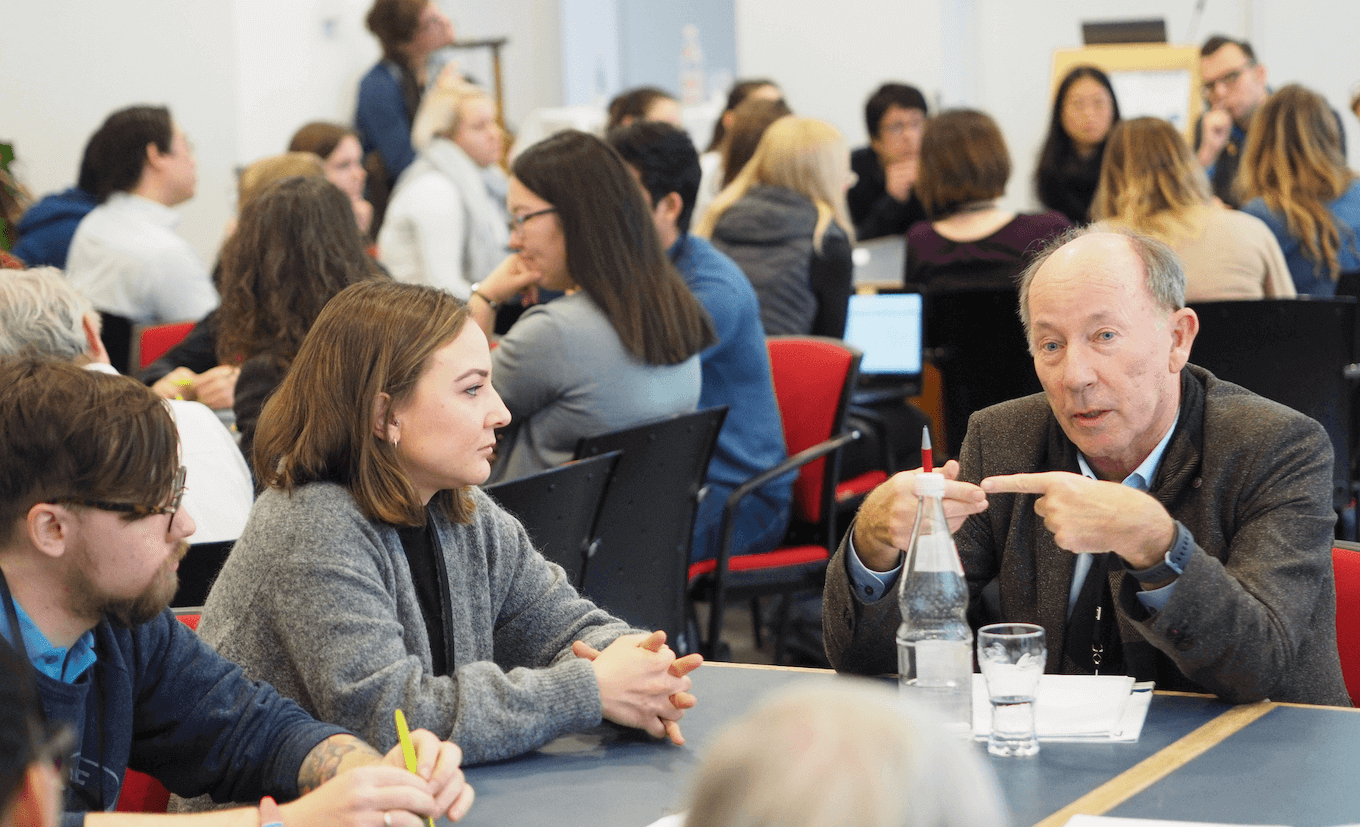
Poster Session and Awards: Present Your Projects
The MQIC Poster Session is a favorite part of the conference for the team because it gives the researchers the opportunity not only to present their projects but also to win cash prizes, including the Best Poster Award. This year, there were 25 poster submissions, 17 of which were accepted and displayed throughout the duration of the entire conference.
Unique to this year was also the fact that there were two first-place awards! One €200.00 EUR first place prize went to the best research project with MAXQDA: “Telling Community Stories: Using MAXQDA to Tell a Story in Health Development in Rural Cameroon” by Patrick Mbah Okwen. Another prize went to the best teaching project with MAXQDA: “The Sorcerer’s Apprentices: Using MAXQDA for teaching the study of historical witchcraft documents” by Andreas W. Müller.
The award for second place went to Andre Morgenstern-Einenkel for his poster “Investigation of violence in children’s homes”, and Mateusz Kot took third place with his poster “Network Pictures Analysis in MAXQDA”. Thank you again to everyone who submitted a poster!
Networking Events: Welcome to the MAXQDA Community
Each conference day was concluded with a networking event, allowing MQIC participants to make new connections and to exchange knowledge in an informal environment.
On Wednesday the participants were offered to take part in the MQIC Berlin By Night bus tour. The route included several of the best Berlin sights, such as Charlottenburg Castle, Brandenburg Gate, Tiergarten, and many others. This was especially convenient for our international guests who were new to the city.
On Thursday, guests gathered at the famous MQIC Get-Together Networking Event. This event is a beloved tradition at the MQIC, with its 3 necessary elements: wine, cheese, and lively conversation!
Finally, on Friday the Farewell Café was – as always – the event that concluded the conference. Over traditional German Kaffee und Kuchen (coffee and cake) participants once again had the chance to exchange contacts, share experiences and say goodbye… until the next MQIC! See great snapshots of these events and the MQIC here:
We look forward to another great conference in 2020! Stay tuned for more information coming soon and don’t forget to sign up for the MAXQDA Newsletter to make sure you always receive the latest news from the VERBI Software offices in Berlin.

